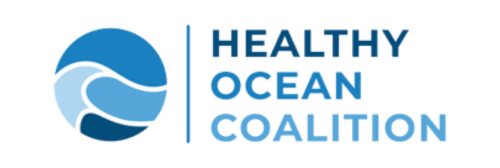Building and Sustaining Trust Workshop or Presentation
Building and Sustaining Trust Workshop or Presentation
Build a foundation of trust in your organization.

Build a Foundation of Trust
Trust is foundational to your organization's success in conservation efforts. Let our DEI consultants here at Lacy Consulting Services guide you through our Building and Sustaining Trust Workshop or Presentation to create a culture of trust, resilience, and effective collaboration. Contact us today to learn more about how we can help your organization thrive in building and sustaining trust. Together, we can make a meaningful impact on your conservation goals and create a more sustainable future.
Practical Implications
In our Building and Sustaining Trust Workshop, we integrate the following trust ecology principles:
Educate
We teach conservation organizations about the different trust types (dispositional, rational, affinitive, and systems-based) and their significance.
Assess Trust Ecosystems
We help organizations evaluate their trust networks and identify areas for improvement.
Promote Trust Diversity
We encourage diverse forms of trust-building within teams and partnerships.
Design Resilient Governance
We use trust ecology insights to design governance structures that withstand disruptions.
Our Building and Sustaining Trust workshops and presentations are designed to equip you with the tools and strategies necessary to increase and sustain trust within your organization and with the communities you serve. Our program is based on our ESG consultants’ extensive background and research in the social science of trust and its direct impact on conservation success. If you think that partnering with Lacy Consulting Services for sustainability education might be right for you, contact us today.

The Role of Trust in Conservation Goals
At Lacy Consulting Services, we understand that trust plays a vital role in achieving your organization's conservation goals and fostering meaningful connections with key stakeholders.
Grow your impact by:
- Increased understanding of local influence
- Increased stakeholder support and trust
- Increased ability to stabilize relational conflicts
Dispositional Trust
The level of trust that exists before your audience interacts with anyone from your organization, shaped by personal backgrounds, common beliefs, and natural inclinations.
Rational Trust
Predominantly established by evaluating past achievements. It involves analyzing previous performance to predict future outcomes based on a cost/benefit analysis.
Affinitive Trust
Cultivated through positive engagements showcasing active listening. Potential disruptions may arise from staff turnover and conflicting relationships.
Systems-Based Trust
Helps mitigate individuals' risk levels in potential trust connections and may reduce the immediate need for other trust types. This enables individuals to collaborate effectively with less emphasis on interpersonal trust.

The Trust Ecology Framework
The Trust Ecology framework, created by renowned social scientist Professor Marc Stern, explores trust from a behavioral perspective, acknowledging that trust is not solely reliant on human perception and attitudes. It identifies four different forms of trust: Dispositional Trust, Rational Trust, Affinitive Trust, and Systems-Based Trust. These dimensions of trust provide a comprehensive understanding of the trust dynamics within your organization and with the communities you interact with.

Customized to Your Unique Needs
During our "Building and Sustaining Trust Workshop or Presentation," our experienced staff will work closely with your team to identify possible actions that can be taken to increase and sustain trust. This process is guided by the Trust Ecology framework, ensuring a research-driven and data-based approach. By understanding the unique dynamics within your organization, we can provide tailored recommendations and strategies for building and maintaining trust over time.
Featured Partners



Building Emotional Intelligence
Our workshops and presentations delve into the role of emotional intelligence in trust-building efforts. Understanding and managing emotions effectively can profoundly impact how trust is perceived and developed. By incorporating emotional intelligence training into our programs, we help organizations cultivate self-awareness, empathy, and relationship management skills essential for nurturing trust-based interactions.
Trust is not a transactional element, but a foundational principle that underpins successful relationships and outcomes. Through sustainability education, we offer practical insights and tools that enable organizations to cultivate trust as a strategic asset, driving collaboration, innovation, and long-term sustainability.

Experienced, JEDI-Informed Staff
Through our program, we empower your organization to implement justice, equity, diversity, and inclusion (J.E.D.I.) principles in your trust-building efforts. We emphasize the importance of utilizing social science techniques, such as focus group meetings, interviews, and surveys, to gain insights into the knowledge, attitudes, perceptions, and values of your target audience. This evidence-driven approach allows you to engage with your audience in a way that fosters trust, equity, and collaboration.
